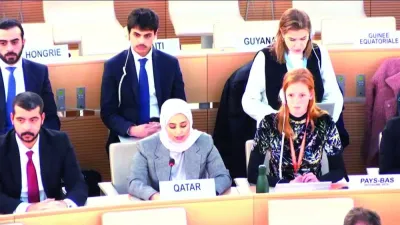Qatar Red Crescent Society (QRCS) has sent a team of disaster response experts to outline a humanitarian intervention plan to help the victims of the Afghanistan earthquake.
Over eight days, the delegation will make field assessments of the impact of the disaster, identify intervention priorities to protect the safety and dignity of the local communities, evaluate QRCS projects and potential improvements, and distribute urgent assistance based on the assessment results.
The assessment process targets the earthquake-affected regions that are accessible, have information gaps, and need urgent interventions. Within the timeframe of the delegation, the efforts will cover only the severely damaged provinces of Nangarhar, Badakhshan, Kunar, and Kabul.
The team uses assessment tools and makes interviews with partners, local communities and leaders, government officials, NGOs, and UN agencies, in coordination with the Afghan Red Crescent Society (ARCS).
In Kabul, the team made a field visit to a central hill to have an overview of the humanitarian situation in the province. Co-ordination meetings were held with disaster management officers and local officials of ARCS, the Governor of Kabul, the Minister of Disaster Management and Humanitarian Affairs, the disaster management co-ordinator of the International Federation of the Red Cross and Red Crescent Societies (IFRC), and the co-operation co-ordinator of the International Committee of the Red Cross (ICRC).
According to the initial assessment, the earthquake toll included 232 deaths, 1,842 injuries, and 7,000 damaged houses. Assessment is still ongoing in the remote districts of Badakhshan.
The urgent needs are shelter, food and nonfood items, house rebuilding, water and sanitation, health care, and income generation.
QRCS team has already distributed food items (wheat, rice, vegetable oil, sugar, beans, and tea) and nonfood items (blankets and tarpaulins) to 7,980 beneficiaries in Badakhshan, Takhar, Nangarhar, Kunar, Nuristan, and Laghman.
Relief distributions are set to continue in Badakhshan that has received no aid so far. Food and nonfood assistance is being prepared for 1,000 affected families in mountainous areas.
Dropping temperatures have added to the suffering of the homeless families.



